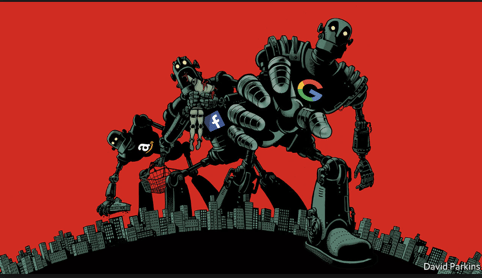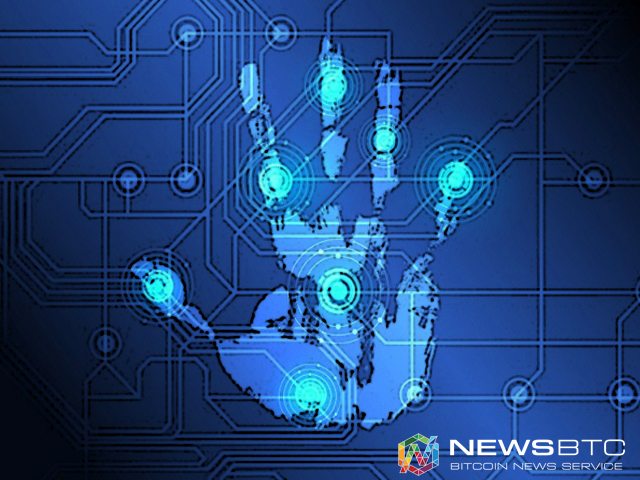Reason to trust

How Our News is Made
Strict editorial policy that focuses on accuracy, relevance, and impartiality
Ad discliamer
Morbi pretium leo et nisl aliquam mollis. Quisque arcu lorem, ultricies quis pellentesque nec, ullamcorper eu odio.
The Interview is done by Block72. Block72 is a global professional consulting firm specializing in blockchain and distributed ledger technology. Their team is led by senior management coming from top investment banks and management consulting firms including McKinsey & Company and Ernst & Young and have multiple offices across the world including New York, Shanghai, Beijing, Seoul, Singapore, and San Francisco.
We had the opportunity to sit down with Serafin Lion Engel from Datawallet—a digital wallet to consolidate our personal data.
Why is personal data management important? How will blockchain based data exchanges transform our day to day behaviour? How can we ethically profit from our data? And most importantly, how can we wrestle with the big technology titans and regain control? These are the questions Datawallet claims to answer with their “self-sovereign” solution to data management.
For those who don’t know already, what is Datawallet?
We believe data should be owned and controlled by the people who create it — the users. And that is exactly why we built Datawallet, a blockchain powered, decentralized data exchange that puts people in charge of their data and empowers developers to create the next generation of world-class applications. Users can feed their online data into their Datawallet and share it for rewards, instantly personalized services and more—all in a completely privacy-preserving manner.
Serafin, most people don’t think about data ownership. Do you see that changing in the next decade?
Yes, and it’s been changing because of a few catalysts that becoming more and more relevant. The main reason why people don’t care is because they don’t know. They know something is wrong with the control of their data, but they can’t put their finger on it. They know if they shop for shoes, they’ll see ads for shoes for the next two weeks. But they don’t understand how, and it’s a bit creepy, and they’re too busy with their day-to-day, so they don’t dive into the technology behind it all.
One set of catalysts are the continued scandals related to personal data. There were a couple of events over the last few years that have brought the data ecosystem to the forefront—Visa, Playstation, Equifax, Facebook—and the stories around those drove awareness and understanding which in turn makes the problem clear enough to care about. Facebook was huge and really got to people because in those other hack situations there was always an external third party who was malicious.
But with Facebook, you had a situation where the third party acted completely within the constraints of the privacy policy. And instead of trying to sell you shoes, they’re trying to manipulate your vote for president. That was the result of a contract with a service people enjoyed and seemed to trust; that really made it clear hackers aren’t always the biggest threat to your data and how gets used.
Data protection laws like GDPR are another catalyst, and as people around the world become more and more aware of these issues, we expect to see more reporting and legislating about data misuse and proper data ownership.

Source: https://www.economist.com/leaders/2018/01/18/how-to-tame-the-tech-titans
How will blockchain change how people interact with their data?
Currently, all your data is with the entity that offers you their service and you are not at all able to comprehend and control what they do with it. Now, you can do the entire thing off-chain (i.e. data not being stored on the blockchain), but then all the data is still centrally stored and that is always dangerous. Right now, you have data in hundreds of silos, and you’re the only entity that connects data cross-platform.
The reason why blockchain is so important in this ecosystem is that it allows us to devise a self-sovereign wallet. The data is completely stored on your own device. You can choose to share it directly with the companies you want to interact with. If that blockchain piece wasn’t there, what we are doing would be an extremely dangerous value proposition, but using blockchain technology gives the user full control over their Datawallet.
How will Datawallet compete with existing data exchange protocols like Ocean Protocol & APEX?
I think data exchange protocols are in their early stages and that competition is a good thing. We all need to be innovative because users deserve control over their data, and they needed that yesterday. Also, I welcome the competition because it brings awareness to space and I’m confident in our team, vision, and solution.
For instance, we are one of the only ones that have an end-to-end solution such that we have a personal data management platform on the user side. But then we don’t just leave it at that. We productize the data and it’s made available through an API. No raw data is ever exchanged and most companies to this day find it difficult to utilize that raw data anyways. We also have a technical advantage. My Co-Founder & CTO Daniel Hawthorne is a Stanford PHD in cognitive science—likely one of the few people that can actually model and write the algorithms needed to properly analyze the data we are dealing with.
The second advantage is clearly our enterprise network; people who are involved as executives or investors—for example, Mark Benioff, Founder & CEO of SalesForce, is arguably the most important B2B data business in the world and is an early investor in Datawallet. We have senior executives from some of the biggest companies in the market research space. And we recently announced the hire of Jeremy Geiger as a new COO, coming from Foursquare where he headed the Asia-Pacific Division.
How does commoditizing attention make for a more streamlined customer experience?
“Commoditizing attention” currently means a company is purchasing impressions to general audiences. An “impression” is when you get showed an ad on a website. And general audiences are something like “women aged 20 to 40 living in suburban areas with kids.” So companies are already trying to commoditize attention, but because they treat their customers like a resource instead of a business partner, they normally end up cluttering the user experience. The audiences are general, and they need to be general because whoever had and sold that data about you—Google, Facebook, Acxiom, etc.—didn’t bother to invite you into the process, so there’s only so much they can share. The result is that people get shown tangentially related content and popups that we’ve learned to ignore, and when that “impression” only flickers past your eye or annoys you, it’s detrimental to the marketers and their ROI too.
If you had all your data on Datawallet, you could sell your data and attention directly to marketers, supporting brands or causes you care about while opting into more ads, offers, and information about them. You’d get to choose what you share about yourself and help curate personalized online and in-app experiences.
It would also help companies develop better relationships with their customers. Direct and ethical data sourcing enables better customer service, better outreach, and better products, all of which increases a company’s standing with their customers. The improved relationship makes customers more willing and even excited to share or sell their data to get the better experience. It’s a virtuous cycle.
What is the single greatest barrier to the adoption of data exchange protocols?
Network effects on the enterprise side—making this actually work with existing systems. That is what everyone is trying to figure out. It’s a common hurdle for disruptive technologies.
There’s always some inertia with existing systems, and it takes a nuanced approach to both use it and then push against it at the proper times.
How do you plan to bootstrap the network with providers or requesters?
That’s where the infrastructure we have on the enterprise side comes into play—through our executives in market research, our investors, our team, and our strategy. We have access to the right companies and to people who are excited about our ideas. All of them also provide invaluable feedback we use to build Datawallet into a platform that actually works for both sides. It takes a lot of work and it’s not sexy, but it’s what’s required to make our exchange usable and valuable for everyone.
Disclaimer: The opinions expressed in this article do not represent the views of NewsBTC or any of its team members. NewsBTC is neither responsible nor liable for the accuracy of any of the information supplied in Sponsored Stories/Press Releases such as this one.



























